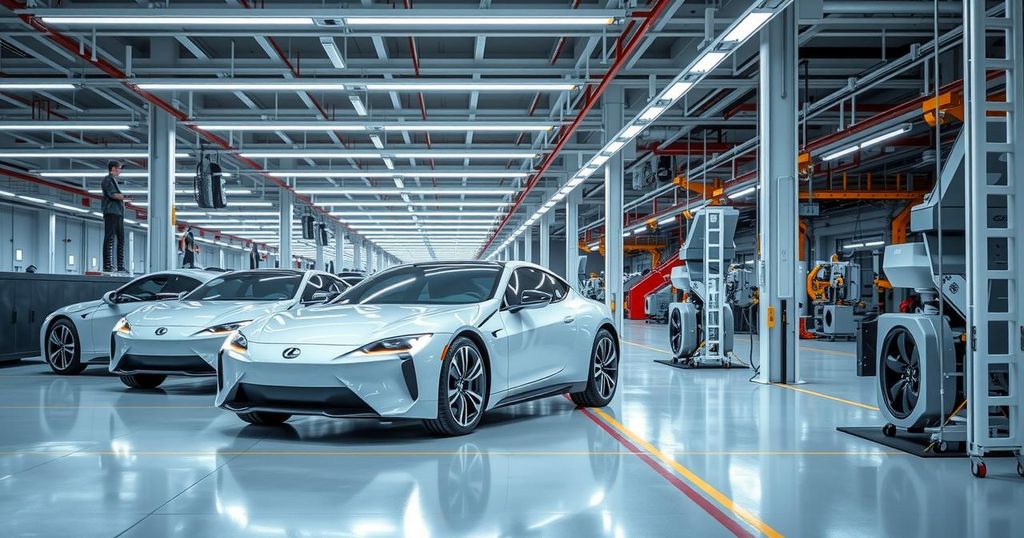Toyota to Establish Lexus Electric Vehicle Factory in Shanghai by 2027
Toyota is reportedly planning to construct an electric vehicle manufacturing facility for its Lexus brand in Shanghai by 2027 without a local partner, marking a significant step into the Chinese market for Japanese automakers. This move aims to enhance Toyota’s competitiveness against growing EV dominance in the region.
Reports indicate that Toyota is set to establish an electric vehicle (EV) manufacturing facility specifically for its luxury Lexus brand in Shanghai, aiming to commence operations by 2027 without enlisting a local partner. This move would mark the first instance of a Japanese automaker building such a factory in China, coinciding with the growing dominance of the Chinese market in the automotive sector, particularly in EVs. Although Toyota declined to officially confirm the development, it is anticipated that the new plant will enhance its competitive edge amid a challenging economic landscape for foreign automakers in China. In light of the emerging EV market, Japanese automotive rivals Honda and Nissan are also exploring a merger to fortify their positions within this rapidly evolving industry. The new Shanghai facility is expected to primarily focus on the production of Lexus models, as the brand currently relies on vehicles manufactured in Japan to cater to its clientele in China.
The establishment of a Lexus EV factory in Shanghai by Toyota is particularly significant given the backdrop of intense competition in the Chinese automotive market, which has rapidly ascended to become the world’s largest vehicle exporter. In recent years, Japanese automakers have been challenged by this shift, particularly as their focus has largely remained on hybrid technologies. As consumer preferences gravitate towards electric vehicles, firms such as Honda and Nissan are also reacting to market pressures by considering mergers to enhance their technological capabilities in this domain. The competitive landscape necessitates that traditional automakers adapt swiftly to retain relevance, particularly in a market where consumer spending is fluctuating, and competition intensifies.
In conclusion, Toyota’s plan to build a Lexus EV plant in Shanghai underscores the company’s commitment to securing a foothold in the burgeoning Chinese electric vehicle market. This initiative reflects a broader trend among automakers to innovate amidst challenges posed by changing consumer preferences and stiff competition. With the rise of EVs steering the industry’s trajectory, traditional car manufacturers must act decisively to maintain market relevance.
Original Source: www.barrons.com








Post Comment